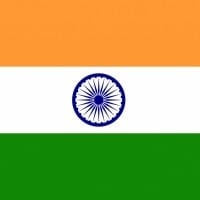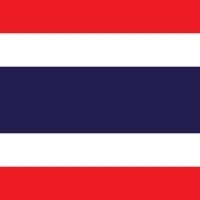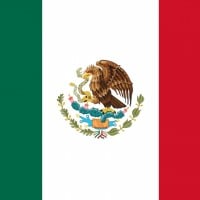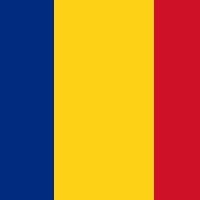Top Ten Most Superstitious Countries
People believe that superstitions connect them with the Supernatural Force called God. What differentiates between superstitions and worship is that not only are people fooling themselves but also decreasing the progress of their country. India, officially the Republic of India, is a country in South Asia. It is the seventh-largest country by area, the second-most populous country (with over 1.2 billion people), and the most populous democracy in the world. Its capital is New Delhi. Some other major cities are Mumbai, Chennai, and Ahemdabad... read more
India, officially the Republic of India, is a country in South Asia. It is the seventh-largest country by area, the second-most populous country (with over 1.2 billion people), and the most populous democracy in the world. Its capital is New Delhi. Some other major cities are Mumbai, Chennai, and Ahemdabad... read more Hinduism the main religion of India has its foundation from Superstitious beliefs. Lack of proper education and exposure makes Indian minds lacking confidence and start believing whatever the so called God-man's preach or practice to exploit their believers.
Don't know how on earth someone can eat cowdung and drink gomutra (urine from cow) everyday as their religious stuffs. So many people were seen to believe Donald Trump, Sachin Tendulkar as their god and they have photos of them hanging inside the praying room. Weirdest thinkings.
 The Democratic People's Republic of Korea, also known as North Korea, is a country in Eastern Asia. Its capital is Pyongyang. It is currently ruled by the Juche leader Kim Jong-Un, after inheriting the title from his father, Kim Jong-Il, who in turn inherited it from his father, Kim Il-Sung... read more
The Democratic People's Republic of Korea, also known as North Korea, is a country in Eastern Asia. Its capital is Pyongyang. It is currently ruled by the Juche leader Kim Jong-Un, after inheriting the title from his father, Kim Jong-Il, who in turn inherited it from his father, Kim Il-Sung... read more Japan is an island country in East Asia in the Pacific Ocean. It lies off the eastern coast of the Asia Mainland (east of China, Korea, Russia) and stretching from the Sea of Okhotsk in the north to the East China Sea and near Taiwan in the southwest... read more
Japan is an island country in East Asia in the Pacific Ocean. It lies off the eastern coast of the Asia Mainland (east of China, Korea, Russia) and stretching from the Sea of Okhotsk in the north to the East China Sea and near Taiwan in the southwest... read more Japan. Just Japan.
Here are some of the superstitions from Japan I know:
Don't write your name in red ink or else you will die.
Children should not cut their nails at night or else they will die before their parents.
If you are in the middle of a 3-person photo, you will die soon.
That's all I'll tell you. Goodbye
 China, officially the People's Republic of China, is a country in East Asia. It is the world's most populous country, with a population of more than 1.4 billion. China spans five geographical time zones and borders 14 countries, the second most of any country in the world after Russia. Covering an area... read more
China, officially the People's Republic of China, is a country in East Asia. It is the world's most populous country, with a population of more than 1.4 billion. China spans five geographical time zones and borders 14 countries, the second most of any country in the world after Russia. Covering an area... read more Eat tiger and rhinocerous because ancient Chinese text say so. Tiger whiskers make you invisible. Rhino horn give you 20 inch e-wreck shun for one week. Eat dog meat- it is good for rheumatism. Dog meat festivals? Olympic athletes CCP instructs eat Deer pea ness make you strong athlete. Many lady swimmer show tea bag in front of swimsuit. Confucius say man with itchy but awake with smelly hand. Also say- man with pen and notepad not always notable. China- you so clazy.
My relatives are Asian and they are superstitious. My mom is EXTREMELY superstitious. She forces everyone to enforce them. They include:
-Ghost month
-anything with Chinese New Year
-Showering
-the number 4
-numbers
-colors
Plus much more!
 South Korea, officially the Republic of Korea (ROK), is a country in East Asia, constituting the southern part of the Korean Peninsula and sharing a land border with North Korea. Its western border is formed by the Yellow Sea, while its eastern border is defined by the Sea of Japan. South Korea claims... read more
South Korea, officially the Republic of Korea (ROK), is a country in East Asia, constituting the southern part of the Korean Peninsula and sharing a land border with North Korea. Its western border is formed by the Yellow Sea, while its eastern border is defined by the Sea of Japan. South Korea claims... read more They would break a window just because an electric fan was turned on
 Greece, officially the Hellenic Republic, is a country in Southeast Europe. It is situated on the southern tip of the Balkans, and is located at the crossroads of Europe, Asia, and Africa. Greece shares land borders with Albania to the northwest, North Macedonia and Bulgaria to the north, and Turkey... read more
Greece, officially the Hellenic Republic, is a country in Southeast Europe. It is situated on the southern tip of the Balkans, and is located at the crossroads of Europe, Asia, and Africa. Greece shares land borders with Albania to the northwest, North Macedonia and Bulgaria to the north, and Turkey... read more "The Evil eye is ever watchful..." My giagia will put such a hex on you... Efkaristo Greece- you so crazy= you smash plates and have soldiers who wear skirts and pompom shoes.
Remember! If you don't give me gyros, then you're going to be in a massive debt!
 Egypt, officially the Arab Republic of Egypt, is a transcontinental country spanning the northeast corner of Africa and southwest corner of Asia via a land bridge formed by the Sinai Peninsula. It is bordered by the Mediterranean Sea to the north, the Gaza Strip (Palestine) and Israel to the northeast,... read more
Egypt, officially the Arab Republic of Egypt, is a transcontinental country spanning the northeast corner of Africa and southwest corner of Asia via a land bridge formed by the Sinai Peninsula. It is bordered by the Mediterranean Sea to the north, the Gaza Strip (Palestine) and Israel to the northeast,... read more The United States of America, or the U.S.A. for short, is a federal republic composed of 50 states, 48 of them are contiguous states. There are two other states, Alaska and Hawaii, which are north and south of the contiguous states, respectively. The United States declared its independence from the... read more
The United States of America, or the U.S.A. for short, is a federal republic composed of 50 states, 48 of them are contiguous states. There are two other states, Alaska and Hawaii, which are north and south of the contiguous states, respectively. The United States declared its independence from the... read more People from all over the world, and the lowest of those have superstitions that make them dangerous especially to children and the elderly.
Most people in my class believe ouiji boards have evil magic.
most people also believe in faith healing.
In the pacific NW, lots of people believe in all sorts of "alternate medicines".
nobody cares about empericism...
I'm very superstitious so beware of my cats!
 Haiti, officially known as the Republic of Haiti, is a sovereign state located in the Western Hemisphere. Despite its sovereignty, it faces numerous challenges that have led to functional difficulties... read more
Haiti, officially known as the Republic of Haiti, is a sovereign state located in the Western Hemisphere. Despite its sovereignty, it faces numerous challenges that have led to functional difficulties... read more When they offer you a hot-tub in the middle of a village- you might want to decline...
 The Philippines, officially the Republic of the Philippines, is an archipelagic country in Southeast Asia. It is situated in the western Pacific Ocean and consists of around 7,641 islands that are broadly categorized under three main geographical divisions from north to south: Luzon, Visayas, and Mindanao... read more
The Philippines, officially the Republic of the Philippines, is an archipelagic country in Southeast Asia. It is situated in the western Pacific Ocean and consists of around 7,641 islands that are broadly categorized under three main geographical divisions from north to south: Luzon, Visayas, and Mindanao... read more Phillippines- we love you in Indonesia- but you believe everything that comes out of whitey's mouth is Gospel and worth listening to and acting according to. Philippines- remember your true heritage- Java and Lapu-Lapu Seishin semangat- fighting spirit.
Philippines has the most superstitious country because I think we have over 5000 superstition
 Thailand, historically known as Siam and officially the Kingdom of Thailand, is a country in Southeast Asia, located at the centre of Mainland Southeast Asia, spanning 513,120 square kilometres (198,120 sq mi), with a population of almost 70 million. The country is bordered to the north by Myanmar and... read more
Thailand, historically known as Siam and officially the Kingdom of Thailand, is a country in Southeast Asia, located at the centre of Mainland Southeast Asia, spanning 513,120 square kilometres (198,120 sq mi), with a population of almost 70 million. The country is bordered to the north by Myanmar and... read more Thai people believe in supernatural and superstitious in daily routine and almost everything in life.
Yes- superstitious but not super-duper so. Mainly it is Thai culture.
 Mexico, officially the United Mexican States, is a federal republic located in North America. The country is located between the U.S. and Central America, and is known for its Pacific and Gulf of Mexico beaches and its diverse landscape of mountains, deserts, and jungles.
Mexico, officially the United Mexican States, is a federal republic located in North America. The country is located between the U.S. and Central America, and is known for its Pacific and Gulf of Mexico beaches and its diverse landscape of mountains, deserts, and jungles. Brazil, officially the Federative Republic of Brazil, is the largest country in both South America and Latin America. At 8.5 million square kilometers (3,300,000 sq mi) and with over 214 million people, Brazil is the world's fifth-largest country by area and the sixth most populous. Its capital is Brasília,... read more
Brazil, officially the Federative Republic of Brazil, is the largest country in both South America and Latin America. At 8.5 million square kilometers (3,300,000 sq mi) and with over 214 million people, Brazil is the world's fifth-largest country by area and the sixth most populous. Its capital is Brasília,... read more Brazilians believe in everything that you tell them to. Critical thinking is something that still doesn't exist in this country, our country is probably the most religious one in Latin America, you guys would be shocked by the ridiculous things that people usually believe here. Black magic, voodoo, prophecies...
Don't use ATM unless off-duty police officer is present.
 Russia, or the Russian Federation (RF), is a transcontinental country spanning Eastern Europe and Northern Asia. It is the largest country in the world by area, covering over 17,125,191 square kilometres (6,612,073 sq mi), and encompassing one-eighth of Earth's inhabitable landmass. Russia extends across... read more
Russia, or the Russian Federation (RF), is a transcontinental country spanning Eastern Europe and Northern Asia. It is the largest country in the world by area, covering over 17,125,191 square kilometres (6,612,073 sq mi), and encompassing one-eighth of Earth's inhabitable landmass. Russia extends across... read more Every superstition, they' have if they even hear it, especially women. Men just are bad and think bad to every other county, very bad nationalism.
People in Russia have same superstitions as Greece and firmly believe in them and follow
 France, officially the French Republic, is a sovereign state comprising territory in western Europe and several overseas regions and territories. The European part of France, called metropolitan France, extends from the Mediterranean Sea to the English Channel and the North Sea, and from the Rhine to... read more
France, officially the French Republic, is a sovereign state comprising territory in western Europe and several overseas regions and territories. The European part of France, called metropolitan France, extends from the Mediterranean Sea to the English Channel and the North Sea, and from the Rhine to... read more Greatest French superstition is aversion to water, soap and cleaning up dog faeces.
 New Zealand is an island country in the southwestern Pacific Ocean.
New Zealand is an island country in the southwestern Pacific Ocean.It is situated 1,500 kilometres (900 mi) east of Australia across the Tasman Sea and roughly 1,000 kilometres (600 mi) south of the Pacific island areas of New Caledonia, Fiji, and Tonga. New Zealand's capital city is Wellington,... read more
 Romania is a sovereign state located in Southeastern Europe It borders the Black Sea, Bulgaria, Ukraine, Hungary, Serbia, and Moldova. It has an area of 238,391 square kilometres and a temperate-continental climate. With over 19 million inhabitants, the country is the seventh-most-populous member state... read more
Romania is a sovereign state located in Southeastern Europe It borders the Black Sea, Bulgaria, Ukraine, Hungary, Serbia, and Moldova. It has an area of 238,391 square kilometres and a temperate-continental climate. With over 19 million inhabitants, the country is the seventh-most-populous member state... read more Belarus, officially the Republic of Belarus, formerly known by its Russian name Byelorussia or Belorussia, is a landlocked country in Eastern Europe bordered by Russia to the northeast, Ukraine to the south, Poland to the west, and Lithuania and Latvia to the northwest. Its capital and most populous... read more
Belarus, officially the Republic of Belarus, formerly known by its Russian name Byelorussia or Belorussia, is a landlocked country in Eastern Europe bordered by Russia to the northeast, Ukraine to the south, Poland to the west, and Lithuania and Latvia to the northwest. Its capital and most populous... read more Spain, or the Kingdom of Spain, is a country in southwestern Europe with parts of territory in the Atlantic Ocean and across the Mediterranean Sea. The largest part of Spain is situated on the Iberian Peninsula; its territory also includes the Canary Islands in the Atlantic Ocean, the Balearic Islands... read more
Spain, or the Kingdom of Spain, is a country in southwestern Europe with parts of territory in the Atlantic Ocean and across the Mediterranean Sea. The largest part of Spain is situated on the Iberian Peninsula; its territory also includes the Canary Islands in the Atlantic Ocean, the Balearic Islands... read more Formed in 1916 after the Easter uprising, Ireland is a small country with a population of roughly 5 million.
Formed in 1916 after the Easter uprising, Ireland is a small country with a population of roughly 5 million. It's definitely got to be Ireland, They have this tradition in Halloween where they set a campfire and throw a dead rabbit in the fire so that the evil spirits don't get near them, Also, They consider magpies bad luck, come on, They should have a good reason, And there are people in their gardens looking for ladybugs and four leave clovers, They have so many superstitions there and it's really annoying when they overreact to every single thing that they consider bad luck, It should have been number one
 Peru, officially the Republic of Peru, is a country in western South America, bordered by Colombia and Ecuador to north, Brazil to east, Bolivia to south-east, Chile to south and the Pacific Ocean to the west. Peru is mostly known for being where the Inca people originally came from. The capital of... read more
Peru, officially the Republic of Peru, is a country in western South America, bordered by Colombia and Ecuador to north, Brazil to east, Bolivia to south-east, Chile to south and the Pacific Ocean to the west. Peru is mostly known for being where the Inca people originally came from. The capital of... read more Scotland is a country that is part of the United Kingdom and covers the northern third of the island of Great Britain. Scotland is the most mountainous, and least densely populated country in the United Kingdom.
Scotland is a country that is part of the United Kingdom and covers the northern third of the island of Great Britain. Scotland is the most mountainous, and least densely populated country in the United Kingdom. Very superstitious people! Throw spilled salt over your shoulder for good luck.
And the New Year's (Hogmanay) tradition -!
 Saudi Arabia, officially the Kingdom of Saudi Arabia (KSA), is a country on the Arabian Peninsula in Western Asia. It has a land area of about 2,150,000 km2 (830,000 sq mi), making it the fifth-largest country in Asia, the second-largest in the Arab world, and the largest in Western Asia. It is bordered... read more
Saudi Arabia, officially the Kingdom of Saudi Arabia (KSA), is a country on the Arabian Peninsula in Western Asia. It has a land area of about 2,150,000 km2 (830,000 sq mi), making it the fifth-largest country in Asia, the second-largest in the Arab world, and the largest in Western Asia. It is bordered... read more
 Denmark is a Nordic country in Northern Europe. It is the most populous and politically central constituent of the Kingdom of Denmark, a constitutionally unitary state that includes the autonomous territories of the Faroe Islands and Greenland in the North Atlantic Ocean. European Denmark is the southernmost... read more
Denmark is a Nordic country in Northern Europe. It is the most populous and politically central constituent of the Kingdom of Denmark, a constitutionally unitary state that includes the autonomous territories of the Faroe Islands and Greenland in the North Atlantic Ocean. European Denmark is the southernmost... read more Myanmar (formerly Burma) is a Southeast Asian nation of more than 100 ethnic groups, bordering India, Bangladesh, China, Laos and Thailand. Yangon (formerly Rangoon), the country's largest city, is home to bustling markets, numerous parks and lakes, and the towering, gilded Shwedagon Pagoda, which contains... read more
Myanmar (formerly Burma) is a Southeast Asian nation of more than 100 ethnic groups, bordering India, Bangladesh, China, Laos and Thailand. Yangon (formerly Rangoon), the country's largest city, is home to bustling markets, numerous parks and lakes, and the towering, gilded Shwedagon Pagoda, which contains... read more